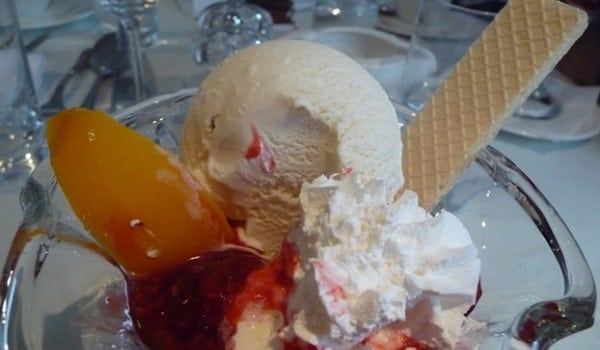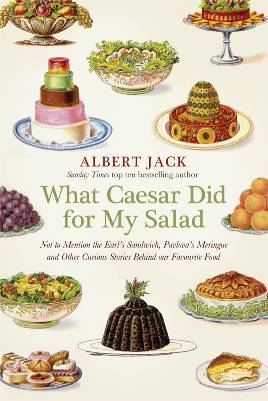Auguste Escoffier (1846–1935) was a French chef, restaurateur and writer, a key figure in the development of modern French cuisine.
In the 1880s, he formed a partnership with the equally celebrated César Ritz (founder of the Ritz Hotel in London), the two of them being called upon by Richard D’Oyly Carte (see sole Véronique) to run the Savoy Hotel, where Escoffier devised some of his most famous dishes.
Aside from being the most respected chef in London during the 1890s, Escoffier was also an avid opera fan (see also poire belle Hélène) and legend has it that he forged a friendship with one of the greatest opera singers of her era, Dame Nellie Melba (1861–1931), when she was staying at the Savoy.
One evening in 1893, the Australian singer, and reputed drama queen extraordinaire, remarked to Escoffier that she loved ice cream but was unable to eat it in case it froze her vocal cords.
Never averse to a challenge, the chef went straight to his kitchen and set about experimenting with ice cream mixed with different types of fruit and sauces, in the hope that these might render the dish less chilly.
He soon hit upon his favourite combination, peaches and vanilla ice cream smothered in raspberry sauce (although alternative versions of the story ascribe the sauce to a later version of the dish).
In a dramatic flourish, the chef later presented his new creation in an ice sculpture of a swan, in reference to Lohengrin and its story of the Swan Knight. Melba was so enchanted by the dish that she was soon demanding it at restaurants and hotels the world over.
Since then, peach Melba has proved such a hit that it was recently shortlisted by a national television competition as one of the world’s greatest dishes, while a National Peach Melba Day (13 January) has been declared in America.
Buoyed by his success with peach Melba, and his growing friendship with Dame Nellie Melba, Auguste Escoffier came up with another dish in her honour.
During her stay at the Savoy Hotel, the singer was complaining of feeling ill one morning, apparently unable to eat her breakfast toast. Escoffier, who had been standing by her table, quickly took a sharp knife and – despite what must have been an obvious temptation to anyone in the company of a whining diva – applied it to the toast instead of the singer herself.
He carefully sliced the toast through the middle, producing two thinner pieces that were easier for the great lady to swallow. And only half as fattening, which went down well with the singer, who was always trying to lose weight.
Ever since that morning at the Savoy Hotel in 1897, Melba toast has gained in popularity, especially when it was discovered that it made the perfect accompaniment for soup or pâté, not to mention cheese. – Albert Jack
Albert Jack AUDIOBOOKS available for download here
More Food History with Albert Jack







































